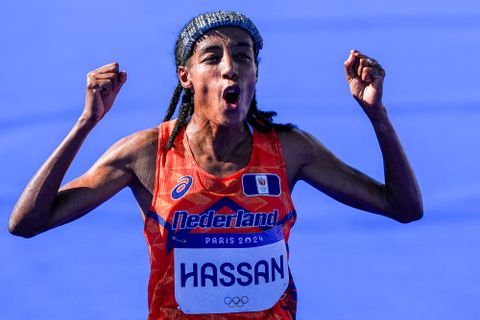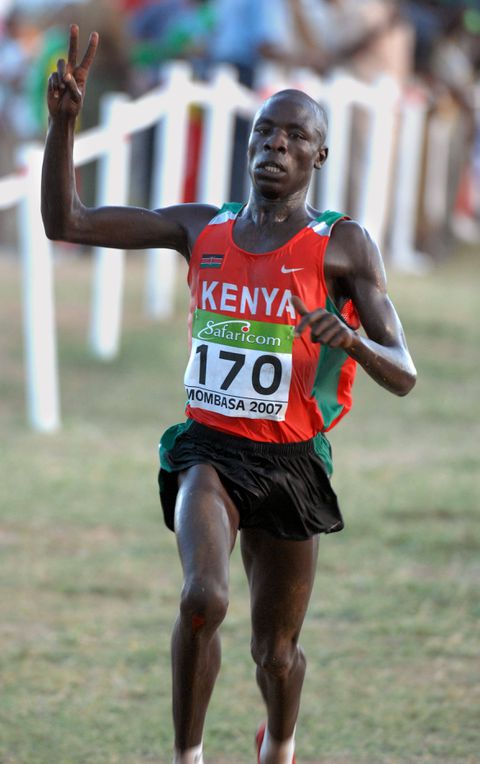Sex has been a controversial topic in football, with myths, science and player experiences shaping the ongoing debate on performance impact.
Several teams across football history have imposed strict bans on sex before matches, believing it could drain players’ energy and weaken their legs.
From World Cup squads to club-level curfews, the debate over whether abstinence enhances performance continues to divide coaches, players and sports scientists. But how much truth is there to this age-old belief?
The notion that sex affects athletic performance has been around since ancient Greece, where Olympians were advised to refrain from sexual activity before competing.
The Bafana Bafana legend was supposed to have been appointed Harambee Stars coach by January but what has delayed his arrival?
In the modern era, famous athletes like Muhammad Ali reportedly avoided sex for six weeks before a fight, while football coaches have issued strict no-sex rules during tournaments. But while some players swear by abstinence, others—including the legendary Pele—have dismissed the idea entirely.
The 2024 Paris Olympics, like the 2016 Rio Games, distributed nearly half a million condoms to athletes, highlighting the active role of sex in elite sports culture. But does it genuinely affect footballers’ performance?
Does sex really affect footballers’ performance?
Many coaches have historically believed that abstinence could boost aggression and testosterone levels making players more competitive on the pitch.
Antonio Miguel, head of medical services at Club Universidad Nacional Pumas, recalled in a past interview with CNN.
“At the end of the ’50s and beginning of the ’60s, people thought that sex diminished the players’ performance. Coaches gave us nitrate salts (potassium nitrate, a substance used to prevent erections) because, according to them, this would inhibit sexual desire.“
However, modern research paints a different picture as several studies have found no clear link between sexual activity and a decline in athletic performance.
According to Juan Carlos Medina, general coordinator of the sports department at Tecnologico de Monterrey, sexual activity might actually help athletes.
“It helps you feel relaxed and sexually, mentally and physically satisfied,” he explains.
“This contributes to reducing the athlete’s anxiety levels before an important match.”
Physiologically, sex burns only 200-300 kilocalories—about the same as a chocolate bar—making it far less exhausting than a training session or match.
Dr. Maria Cristina Rodríguez Gutierrez, director of sports medicine at the National Autonomous University of Mexico, adds. “Sex only burns between 200 and 300 kilocalories, which doesn’t compare to running a marathon or a regular workout session.”
However, there are exceptions. Combat sports, like boxing, require aggression and some trainers argue that sex can reduce a fighter’s edge. Dr. Rodríguez notes, “For combat athletes like fighters or boxers, having sex before an important fight can reduce aggressiveness and make them passive.”
Footballers and their bedroom habits: What the stars say
Despite scientific evidence debunking the myth, many footballers remain divided on whether sex before a game is beneficial or detrimental.
The Netherlands’ national team at the 1978 World Cup allowed players to be accompanied by their wives, finishing in second place.
Chilean footballer Elias Figueroa even admitted that his coach encouraged players to have sex the afternoon before a crucial match, believing it would help them stay relaxed.
On the other hand, some teams have enforced strict bans. Bosnia-Herzegovina’s coach Safet Susic famously declared before the 2014 World Cup, “There will be no sex in Brazil. This is not a holiday trip, we are there to play football.”
Similarly, Nigeria’s team has allowed players to have sex, but only with their wives—perhaps to prevent distractions from casual encounters as reported by The Independent.
Pele, the late football legend, openly rejected the no-sex-before-games philosophy. He revealed that he never refrained from sex before matches and saw no negative impact on his performance.
)
Michael Olunga has opened up on the pressure that comes with being the captain of the national football team Harambee Stars ten years since his debut while still playing for Gor Mahia.
The truth about sex and sports performance
While the belief that sex weakens athletes has persisted for centuries, scientific studies provide little evidence to support it.
A recent study conducted in the Israeli Football Premier League found that players who had sex the night before a match showed a slight decrease in running speed (6.5 km/h vs. 6.0 km/h). However, the difference was minimal and did not impact overall performance.
A larger meta-analysis of nine crossover studies also concluded that sexual activity within 24 hours of exercise does not significantly affect aerobic capacity, endurance, or strength. Instead, factors such as lack of sleep, alcohol consumption, and emotional stress play a much larger role in an athlete’s ability to perform at their peak.
In the end, it appears that sex itself is not the issue—rather, it is the lifestyle choices surrounding it.
)
AFC Leopards midfielder Kelly Madada has risked angering his own supporters with teasing comments about sworn rivals Gor Mahia.
Footballers who maintain a healthy routine, get enough rest and stay mentally focused are unlikely to see any negative effects from sexual activity.






)


